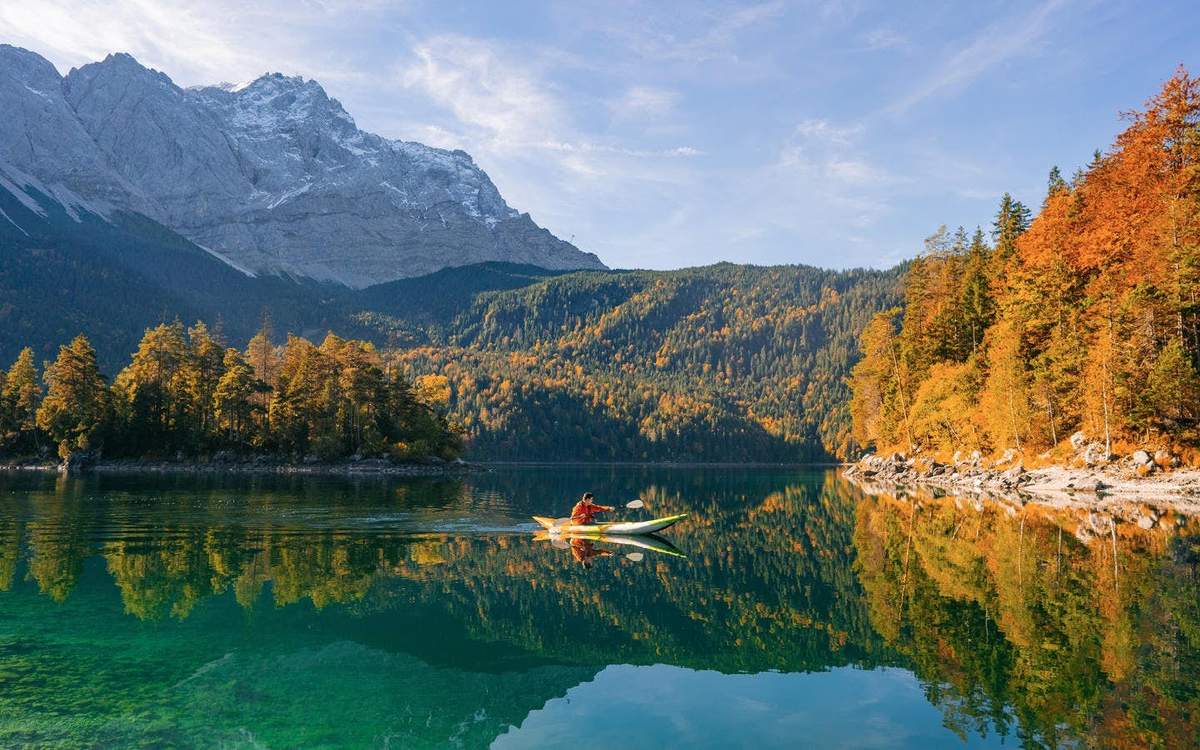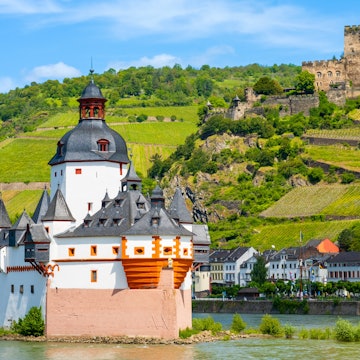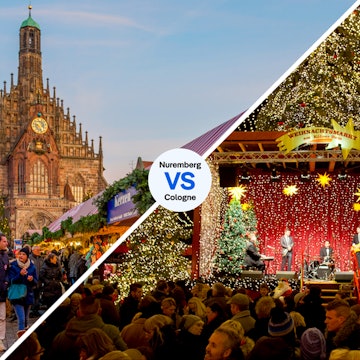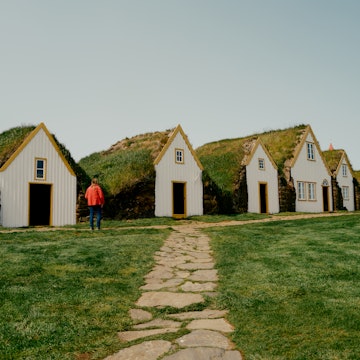

With top tips on safety and local etiquette, here's what you need to know before visiting Bavaria. Getty Images
Picture this: you’ve made it to the top of the mountain after a long hike through the Bavarian Alps.
The trail was like something out of a postcard, with lush green meadows and some friendly cows. But it’s a hot day and even the backs of your knees are sweating. Those last few kilometers were tough, and only the thought of a cold drink at the summit’s alpine hut kept you going. Only when you’re at the hut waiting in line to order do you spot the sign saying, “Cash Only”. You realize you forgot to get cash before starting the climb, and now your reward will have to wait.
In Bavaria, many restaurants and businesses still do not accept credit cards. After five years of living in the southern German state, I’m finally getting into the habit of carrying cash (but only after a disappointing hiking trip). I’ve learned a few other things during my time here, too.
While fairy-tale castles and beer are certainly part of Bavarian culture, there’s more to the state than the famous stereotypes. The following tips on transportation, local culture and etiquette can help ensure your visit goes smoothly.

1. Nature is accessible and must be respected
Home to the foothills of the Alps, Bavaria is naturally breathtaking. Bavarians are aware of the beautiful landscapes surrounding them, and there is an emphasis on cherishing and spending time in nature. With the mountains at their fingertips, many people plan their weekends and holidays around outdoor activities like hiking, skiing and biking. The lakes are particularly popular in summer.
If you want to get out and enjoy the natural scenery during your visit, it’s very accessible. From almost any train station, you’ll find yellow signs listing hiking trails with the difficulty level and a time estimate. Just remember that Bavarians take care of their natural surroundings, and littering on hiking trails (or elsewhere) is highly frowned upon. Avoid leaving trash behind during your adventures and always respect the nature.
2. Bavaria is traditional but also a leader on modern technology
Bavarians may enjoy traditional values in their daily lives, but that doesn’t stop the state from being a leader in industry and innovation. Despite the slower pace of life, especially in the smaller villages, technological progress is palpable, and it’s not uncommon to spot flashy sports cars parked down remote country roads.
As the richest state in Germany, Bavaria is home to a booming economy with many internationally recognizable companies. For example, BMW, Adidas, Siemens and Audi all have their headquarters in the state.
3. Shops are shut on Sundays and many only accept cash
Generally speaking, conservative, religious values are upheld in Bavaria more than other parts of Germany. The state values its traditions, which is reflected in a slower pace of life. You may experience this during your visit, especially if you’re here on a Sunday and notice that many shops and businesses are closed. You’ll also be out of luck if you need to go grocery shopping on a Sunday or after 8pm on other days. Additionally, many smaller businesses and restaurants still only accept cash.
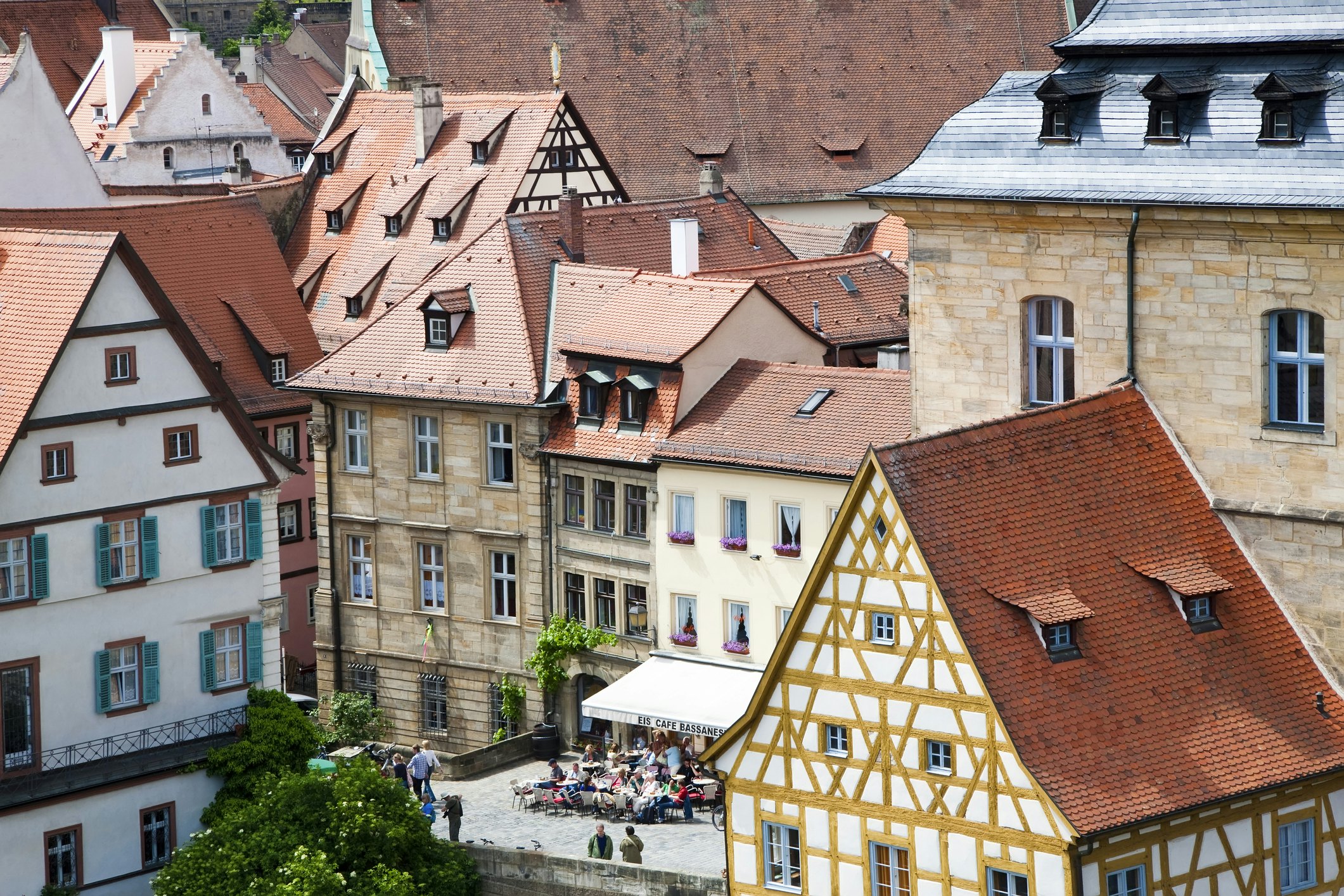
4. The dining culture is laid-back
You won’t need to worry about reservations in most Bavarian restaurants. While you may have to wait for a table during the busy summer months, most of the time you can simply show up, grab a seat and relax. If you’re in a busy restaurant or beer garden, it’s common to sit down next to other diners if there are empty seats at long tables.
Keep in mind that water and bread are typically not free in restaurants. Bavarians don’t normally drink water in restaurants, and when they do, it’s sparkling water from a bottle. If you don’t want to pay for water, you can try asking for “Leitungswasser” and you may be grudgingly served tap water.
5. Bavaria's many different regions each have their own distinct identity
Bavaria in its current form is relatively new, dating back to 1919. Until this point, the different regions were rather independent with their own culture, traditions and cuisine.
For example, Franconia, in the northern part of the state, has a history separate from the rest of Bavaria that goes back over 1000 years. Today, many Franconians identify themselves as separate from Bavaria (and many Bavarians identify themselves as separate from the rest of Germany). The region is home to medieval cities like Nuremberg, Bamberg and Würzberg, where there’s a rich wine growing culture dating back to Roman times. You’re more likely to find locals here sipping Silvaner white wine than knocking back beer.
In the Swabian region to the west, which includes Füssen, home of the iconic Neuschwanstein castle, there’s also a distinct cultural identity. This area prides itself on rich culinary traditions, which include dishes like Spätzle (egg noodles) and Maultaschen (large meat-filled dumplings).
If you need proof of Bavaria’s regional diversity, just listen to the different dialects. The main dialects spoken are Fränkisch, Schwäbisch and Oberbayerisch in the south. Some Germans even have difficulty understanding the Bavarian dialects.
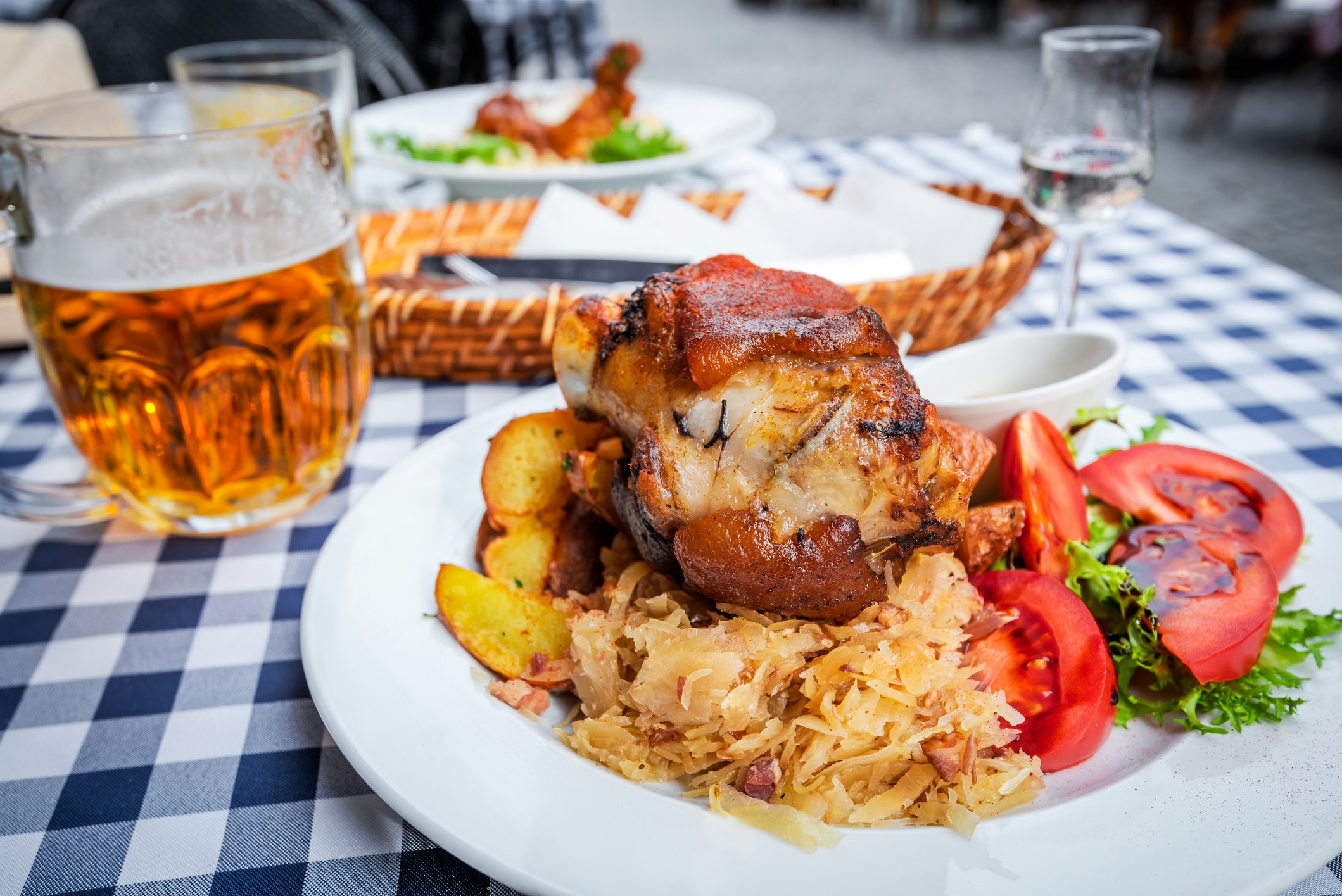
6. Being a vegetarian in Bavaria is challenging
Bavarian cuisine is hearty and delicious, but it can be heavy on the meat and low on the vegetarian options. (The Schweinshaxe, an enormous hunk of roasted pork, is a staple on most menus). While plant-based fare is popular in cities like Munich, it hasn’t quite caught on in smaller villages. Sometimes it can be difficult to be sure you’re ordering a dish without meat. For example, I’ve had a waiter insist that the salad I ordered was vegetarian, and the pieces of ham were just seasoning.
If you’re vegetarian or have other dietary restrictions, it may be difficult to find suitable options on the menu. When in doubt, order the Käsespätzle, a cheesy pasta with onions. If you want a dish with vegetables, your best bet is a veggie stew, potato salad or mushrooms with dumplings.
7. Tipping is customary, but amounts vary
When it comes to tipping, there aren’t strict rules in Bavaria. Although tipping is customary, servers make a living wage and don’t depend on tips. You can generally round up to the nearest €5 or €10 mark, or if that’s a small amount, go for a 10% tip. If paying by card, the staff will typically ask you what tip you would like to leave, and then enter the total amount on the card reader machine directly at the table. It’s also fine to split the bill at the table if you’re part of a larger group of people.
8. Embrace the local beer culture
Yes, there’s truth to the stereotypes, and beer is considered a staple food in Bavaria. Indeed, drinking beer for breakfast with sausage or at work lunches is common. To fit in with locals in the beer garden, remember that you’ll need to clink glasses before sipping your beer, and it’s best to cheers with gusto. The word for “cheers” in German is “Prost” (or “Zum Wohl” if you're drinking wine), and you’ll hear these expressions often in the beer halls.
In addition, Germans insist on making strong eye contact when toasting. While the exact origins of this custom are unknown, it’s said that failing to lock eyes will lead to seven years of bad sex. Whether you believe the superstition or not, it’s best to make like the locals on this one. Another tip to know before you go is that in most beer gardens, you’re allowed to bring in your own food (just not your own drinks).
While drinking in public in Bavaria is legal and socially acceptable, the state has a zero-tolerance policy toward drugs, including marijuana.

9. Oktoberfest isn't the only local beer festival
Bustling beer gardens with overflowing glasses and larger than life pretzels are often the first image that comes to mind when thinking about Bavaria. After all, the region hosts Oktoberfest every year, which is the largest beer festival in the world.
However, Oktoberfest is not the only beer festival in Bavaria. In fact, you can experience a more authentic Bavaria by visiting one of the regional festivals, held from spring to autumn. Whereas Oktoberfest attracts more of an international, tourist crowd with the accompanying high price tags, these smaller folk festivals are where the locals go.
If you really want to take a step back in time, visit Erlangen’s Bergkirchweih, held from late May to early June. You can sip local beer under towering chestnut trees, while enjoying traditional folk music, fairground rides, and an atmosphere steeped in tradition. Expect to see everyone, regardless of age, wearing Tract, the traditional dress. Towns like Rosenheim, Straubing, and Fürth also hold annual festivals that are worth a visit.
10. You can explore the region by train
Public transit in Bavaria is fairly reliable and a great way to get around during your visit. While locals like to complain about Deutsche Bahn (the national rail company), you can generally trust the posted timetables on the DB website and app. If you will be traveling around Bavaria for the day, the Bayern Ticket may be the way to go. This is a day ticket that lets you travel anywhere in the region with unlimited trips for 24 hours, with single and group ticket options available.
To view all of your ticket choices and plan your trips, download the DB Navigator app from Deutsche Bahn. This useful app lets you buy tickets and view updated timetables directly from your phone.
11. Bavaria is the safest state in Germany
With a low crime rate, Bavaria is considered an incredibly safe place. You can walk comfortably alone at night without any problems, and even if you happen to forget your wallet or other valuables at a restaurant, you should be able to get them back easily. While it’s always a good idea to have your wits about you while traveling, Bavaria is one place where you can let your hair down a little in terms of safety.
Bavaria is also very clean. Maybe it’s the high number of trash cans, but the region is surprisingly free of dirt and grime. The water is drinkable everywhere, unless you see a sign reading, “Kein Trinkwasser”.
In case of emergency, dial 110 for the police and 112 for fire and medical assistance.






